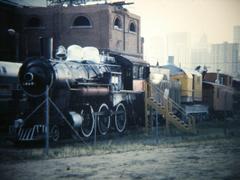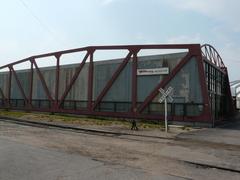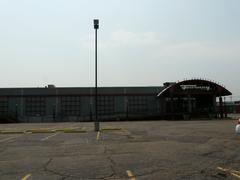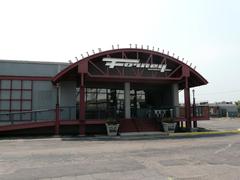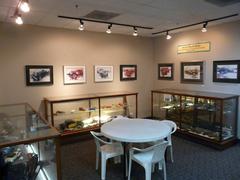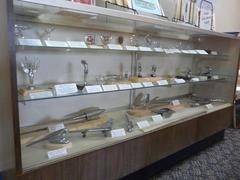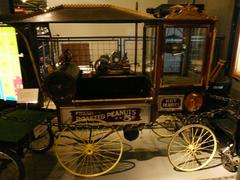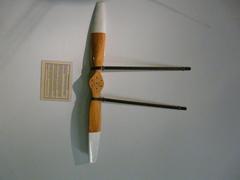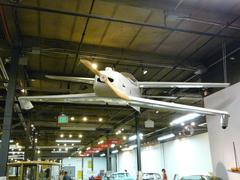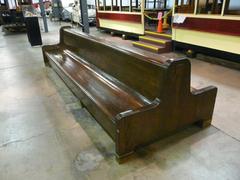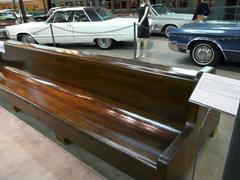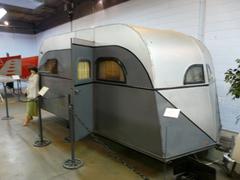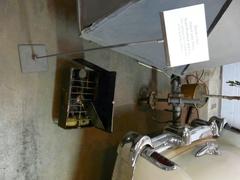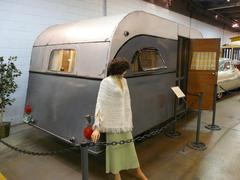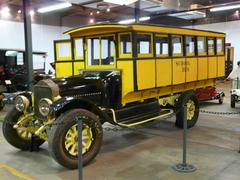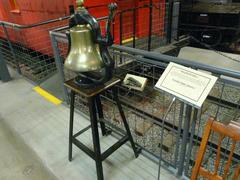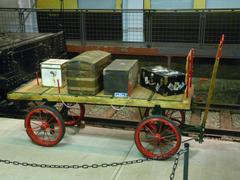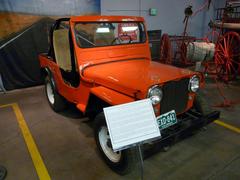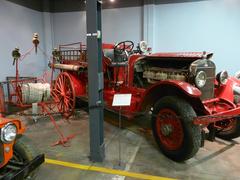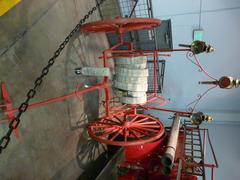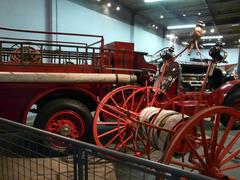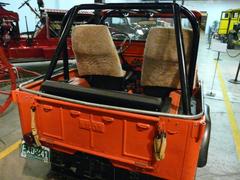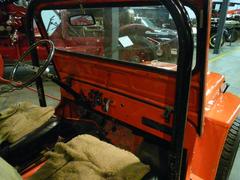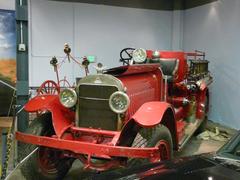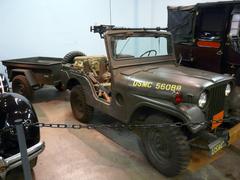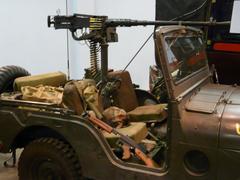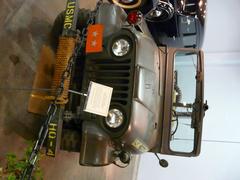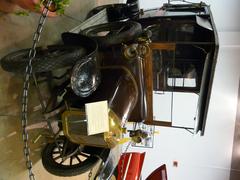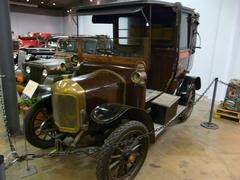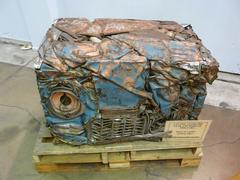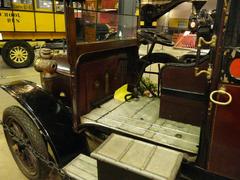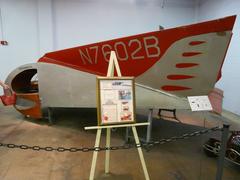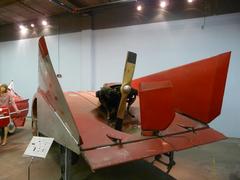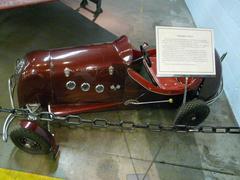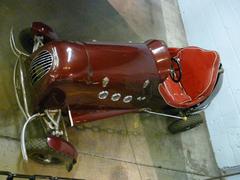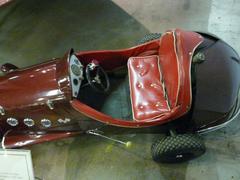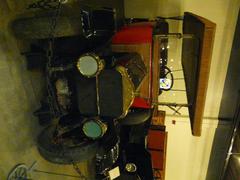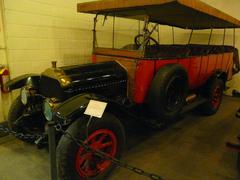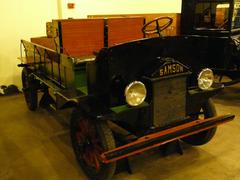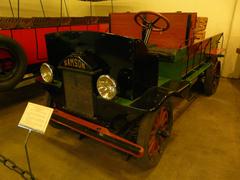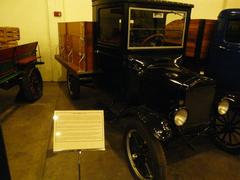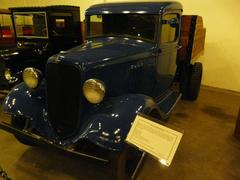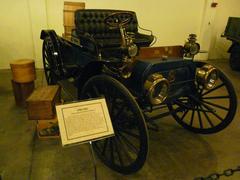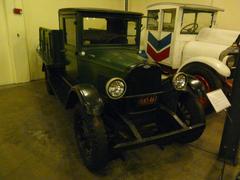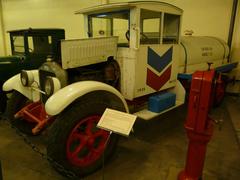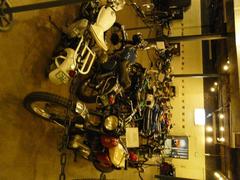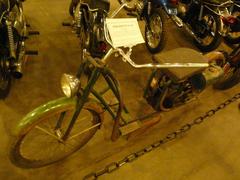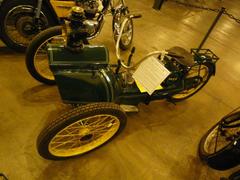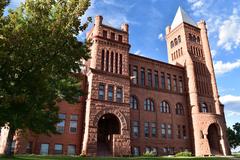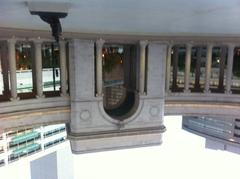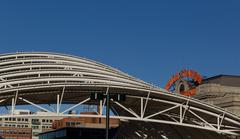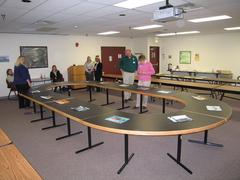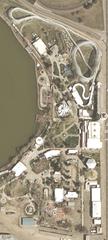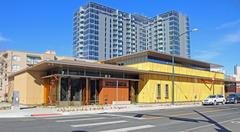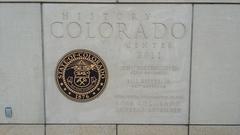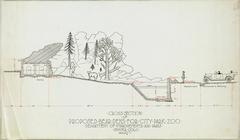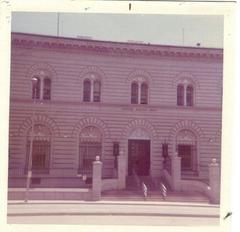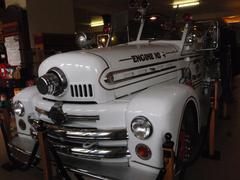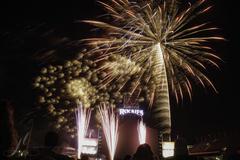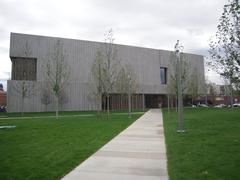
Forney Museum of Transportation Visiting Hours and Tickets in Denver
Publication Date: 19/07/2024
Introduction to the Forney Museum of Transportation
The Forney Museum of Transportation, located in Denver, Colorado, is a treasure trove for history buffs and transportation enthusiasts. Founded in the mid-20th century by J.D. Forney, an entrepreneur passionate about transportation, the museum has evolved into a comprehensive repository of transportation artifacts. From its humble beginnings as a private collection, the museum now boasts an impressive array of vehicles, including automobiles, motorcycles, bicycles, aircraft, and even railroad equipment. Notable artifacts include the Union Pacific “Big Boy” No. 4005 steam locomotive and Amelia Earhart’s 1923 Kissel Gold Bug (Forney Museum of Transportation). With a strong commitment to education and community engagement, the museum offers guided tours, hands-on workshops, and special events that provide deep insights into the history and significance of transportation.
Contents Overview
- Introduction
- Origins and Founding
- Growth and Expansion
- Notable Acquisitions
- Modern Era and Renovations
- Visitor Information
- Educational Programs and Community Engagement
- Preservation and Conservation Efforts
- Future Plans and Vision
- Conclusion
- Frequently Asked Questions (FAQ)
- Call to Action
Discover the Forney Museum of Transportation - History, Tickets, and Visiting Hours in Denver
Introduction
The Forney Museum of Transportation in Denver, Colorado, is a treasure trove for history buffs and transportation enthusiasts alike. This article delves into the rich history of the museum, provides practical visitor information including ticket prices and visiting hours, and highlights its significance among Denver’s historical sites. Whether you’re planning a visit or simply curious about transportation history, read on for a comprehensive guide to the Forney Museum of Transportation.
Origins and Founding
The Forney Museum of Transportation was founded by J.D. Forney, an entrepreneur and inventor who had a profound interest in transportation and machinery. J.D. Forney established Forney Industries in 1932, initially focusing on manufacturing welding equipment. His passion for collecting unique and historical vehicles led to the creation of the museum.
The museum’s origins can be traced back to 1955 when J.D. Forney purchased a 1921 Kissel, a rare and luxurious automobile. This acquisition sparked his interest in collecting other vintage vehicles, and over the years, his collection grew to include a wide variety of transportation artifacts. By 1961, the collection had grown so large that Forney decided to open a museum to share his passion with the public. The Forney Museum of Transportation officially opened its doors in 1961 in Fort Collins, Colorado.
Growth and Expansion
The museum’s collection continued to expand rapidly, necessitating a move to a larger facility. In 1964, the museum relocated to Denver, Colorado. This move allowed for the display of an even more extensive collection of vehicles and transportation artifacts. The museum’s new location provided ample space for the growing collection and attracted a larger audience.
Throughout the 1970s and 1980s, the Forney Museum of Transportation continued to acquire unique and historically significant vehicles. The collection expanded to include not only automobiles but also motorcycles, bicycles, aircraft, and even railroad equipment. The museum’s diverse collection showcased the evolution of transportation technology and its impact on society.
Notable Acquisitions
One of the most notable acquisitions in the museum’s history is the Union Pacific “Big Boy” No. 4005, one of the largest steam locomotives ever built. The “Big Boy” locomotive, built in the 1940s, is a marvel of engineering and a testament to the power of steam technology. The locomotive was acquired by the museum in the 1970s and remains one of its most popular exhibits.
Another significant acquisition is Amelia Earhart’s 1923 Kissel Gold Bug, a rare and historically important automobile. Amelia Earhart, the famous aviator, owned this vehicle during her early years as a pilot. The Kissel Gold Bug is a symbol of Earhart’s pioneering spirit and her contributions to aviation history.
Modern Era and Renovations
In the early 2000s, the Forney Museum of Transportation underwent significant renovations to modernize its facilities and improve the visitor experience. The renovations included the construction of new exhibit spaces, improved lighting, and enhanced accessibility.
In 2001, the museum moved to its current location at 4303 Brighton Boulevard in Denver. The new facility provided even more space for the museum’s extensive collection and allowed for the creation of interactive exhibits and educational programs. The move to Brighton Boulevard marked a new era for the museum, with a renewed focus on providing a comprehensive and immersive experience for visitors.
Visitor Information
Planning a visit to the Forney Museum of Transportation? Here’s what you need to know:
- Address: 4303 Brighton Boulevard, Denver, Colorado
- Visiting Hours: The museum is open daily from 10:00 AM to 5:00 PM.
- Ticket Prices: Adults - $12, Seniors (65+) - $10, Children (3-12) - $6, Children under 3 - Free
- Accessibility: The museum is wheelchair accessible and offers facilities for visitors with disabilities.
Educational Programs and Community Engagement
The Forney Museum of Transportation has always been committed to education and community engagement. Over the years, the museum has developed a range of educational programs and initiatives aimed at inspiring and educating visitors of all ages. These programs include guided tours, hands-on workshops, and special events that highlight the history and significance of transportation technology.
The museum also collaborates with local schools and educational institutions to provide unique learning opportunities for students. Through partnerships with educators, the museum offers curriculum-based programs that align with state and national standards. These programs provide students with a deeper understanding of the role of transportation in shaping society and the impact of technological advancements.
Preservation and Conservation Efforts
Preserving and conserving the museum’s collection is a top priority for the Forney Museum of Transportation. The museum employs a team of skilled conservators and technicians who work diligently to maintain and restore the vehicles and artifacts in the collection. This work ensures that future generations can continue to appreciate and learn from these historical treasures.
The museum’s conservation efforts extend beyond the physical preservation of artifacts. The Forney Museum of Transportation is also committed to documenting and researching the history of each item in its collection. This research provides valuable insights into the development of transportation technology and its impact on society.
Future Plans and Vision
Looking to the future, the Forney Museum of Transportation aims to continue expanding its collection and enhancing the visitor experience. The museum’s leadership is dedicated to acquiring new and historically significant vehicles and artifacts that reflect the diversity and evolution of transportation technology. Additionally, the museum plans to develop new exhibits and programs that engage visitors and provide a deeper understanding of the history and significance of transportation.
The Forney Museum of Transportation also envisions becoming a leading center for transportation research and education. By fostering partnerships with academic institutions, industry experts, and other museums, the Forney Museum aims to contribute to the broader understanding of transportation history and its impact on society.
Conclusion
The Forney Museum of Transportation has a rich and storied history that reflects the passion and dedication of its founder, J.D. Forney. From its humble beginnings as a private collection to its current status as a premier transportation museum, the Forney Museum has played a significant role in preserving and showcasing the history of transportation technology. Through its diverse collection, educational programs, and commitment to preservation, the Forney Museum of Transportation continues to inspire and educate visitors from around the world.
Frequently Asked Questions (FAQ)
Q: What are the visiting hours for the Forney Museum of Transportation?
A: The museum is open daily from 10:00 AM to 5:00 PM.
Q: How much are tickets to the Forney Museum of Transportation?
A: Ticket prices are as follows: Adults - $12, Seniors (65+) - $10, Children (3-12) - $6, Children under 3 - Free.
Q: Where is the Forney Museum of Transportation located?
A: The museum is located at 4303 Brighton Boulevard, Denver, Colorado.
Q: Is the Forney Museum of Transportation wheelchair accessible?
A: Yes, the museum is wheelchair accessible and offers facilities for visitors with disabilities.
Call to Action
Stay updated with the latest exhibits and events at the Forney Museum of Transportation by following them on social media or visiting their official website. Don’t forget to check out related posts and plan your visit to one of Denver’s most fascinating historical sites!
Sources and References
- Discover the Forney Museum of Transportation - History, Tickets, and Visiting Hours in Denver, 2024, Forney Museum of Transportation forneymuseum.org
- Your Ultimate Guide to the Forney Museum of Transportation - History, Tickets, and Visiting Hours, 2024, Forney Museum of Transportation forneymuseum.org
- Essential Visitor Tips for the Forney Museum of Transportation - Hours, Tickets, and Nearby Attractions, 2024, Forney Museum of Transportation forneymuseum.org
